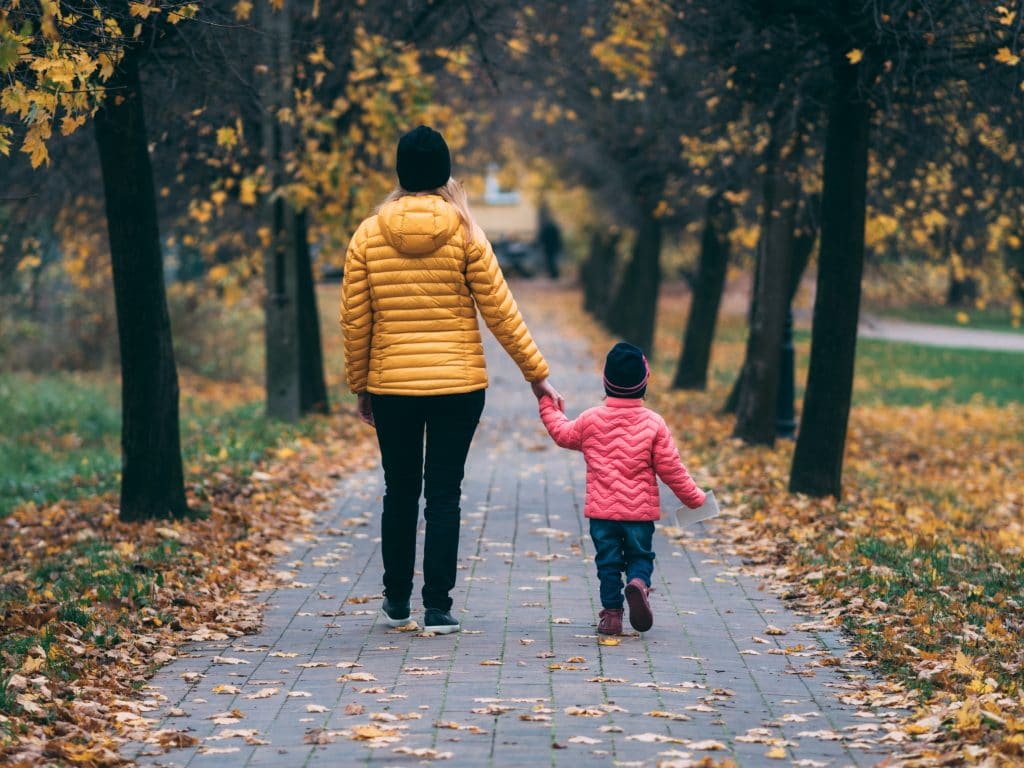
How to Talk to Your Child about Difficult Topics
The world is full of sadness. No matter how much positivity and happiness we try to bring to our children’s lives, there’s no way to avoid the reality of the difficult world that we live in. As adults, it can be difficult to escape the nonstop news cycle. In fact, the sad and tragic news of the day can be very difficult even for adults to process. Imagine how much more difficult it can be for children and teens! As parents, it’s our job to translate the sadness of the world into ways that children can process it. It’s never easy, but here are some tips I’ve gathered through my 15 years of parenting on how to talk to your child about difficult topics.

Limit their exposure to the news.
In some homes, it’s commonplace to have the television on at all times. During a national tragedy, a natural disaster, or when something big is going on in the world, it can be hard to shut the tv off. You feel like you need to know something the very minute it’s announced. But the reality is, you don’t. And even if it’s the case of a hurricane like we have here in Florida, you can always get the information you need from your phone. In this way, every detail won’t be broadcast to the little ears in your home. And you’ll be able to tell them the news in a way that’s safer and more age appropriate for them to hear.

Don’t assume they want to know.
There are some national news stories that will always need to be discussed with children of a certain age. But there are others where, depending on your child’s age and school setting, you may be able to shield them from the topic entirely. For example, you wouldn’t want your teenager being the only person that doesn’t know about a certain current event. So you may need to tell him or her most big stories, no matter how sad. But for a first grader, very little needs to be conveyed about most big news stories, unless it affects his or her life directly.
It seems that sometimes parents share too much with their children, and don’t shield them from enough when they have the chance. You’ll know when a news story is so big that something must be said. And then you’ll want to be the one to tell that news. Otherwise, let them be little and avoid it if at all posssible.
How to Talk to Your Child about Difficult Topics: Tell the Truth
This may seem contrary to the advice I gave in just the last point. But it’s actually complementary! If the situation calls for talking to your child about a difficult topic, tell the truth. Don’t explain away the reality. If they have questions, answer them honestly.
For example, I told my middle schooler and high schooler about the passing of Kobe Bryant, his daughter, and the others in the helicopter. I did this because I knew it would be discussed at their hybrid homeschool. I didn’t want them to be out of the loop or feel clueless. And I also wanted to be able to be there in handling the sharing of the news. I tried to limit the amount of detail, but one of my children asked how they died, how many other people died, if helicopters crash often, etc. I answered each question as honestly as possible, without giving too much detail. Tell your kids the truth, and they will trust you in the future.
Share your own feelings.
It’s ok to be sad when the world is sad. And it’s ok to share that with your child. When tragedy strikes, we all have our own emotions. Sharing your feelings with your children helps them be able to process their own feelings and sadness. If you feel angry, let them know. If you’re feeling confused or frustrated, share that as well. When children see feelings and emotions being processed in a healthy way, it helps them know that emotions are healthy and normal.
Reassure your child without lying.
When difficult things happen in the world, we all feel scared. Children do too, even though they may have difficulty expressing that as directly relating to the event. Giving your child space to ask questions, be sad, and talk about their fears is important. And for especially young children, reassuring them about their safety in your home, is very important.
I’m a big proponent of never lying to children about anything. So if one of my kids asks me, could that ever happen to me? I don’t say, “Absolutely not!” I just say reassuring things like, “We live in a very safe home and Mommy and Daddy do everything in our power to keep you safe.” As Christians, we also share our values and discuss what we believe as a family. For us, this is the ultimate reassurance, and I make time to include that when sharing difficult news with my kids.

How to talk to your child about difficult topics? Take care of yourself.
I’m as guilty as anyone of losing hours of my life on social media, reading about sad things and getting details I don’t need. Why do we do that?! But when we are parents, we need to take extra measures to take care of ourselves. Turn off the tv. Put down the phone. Stop scrolling. And hug your little ones. As parents, we don’t have the luxury of wallowing in the sadness of the world. We have little ones who’s eyes are always watching, and waiting for our response. What are some ways you can take care of yourself in the midst of difficult news?
- Put down the device.
- Stop scrolling.
- Shut off the news.
- Take time for yourself to process your own emotions.
- Get outside.
- Stay active.
- Talk with friends.
- Focus on positivity.
- Find ways to help others.
As the old saying goes, if Mama ain’t happy, ain’t nobody happy. That can clearly apply to Dad as well. Our children are watching us and we set the tone in our homes. We are all required to process difficult news nearly every day or every week. How you do this will help model for your children how they can do it as well. What tips do you have for how to talk to your child about difficult topics? I’d love to hear them in the comments!
You may also like:
You May Also Like

Redwoods Drive Through Tree: Where to Find the Best
July 5, 2019The 3 Most Surprising Things about the Everglades National Park
May 31, 2018



